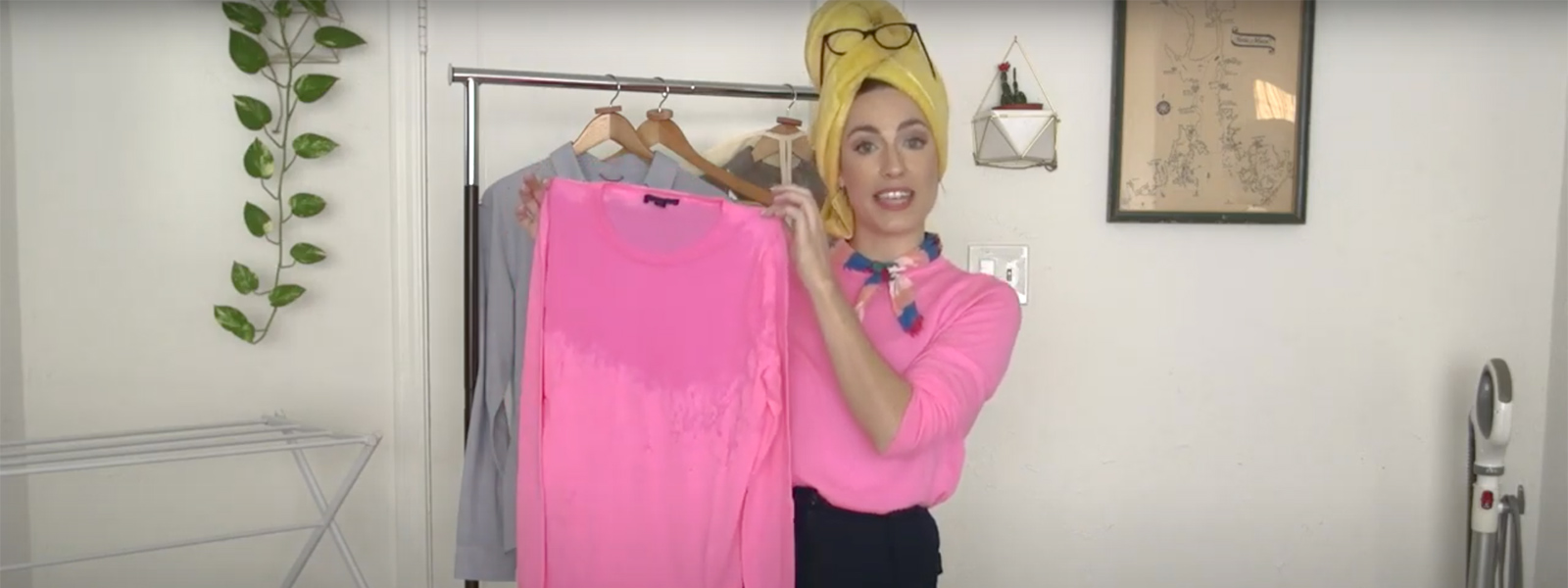Drying your favourite wool sweater - or any other wool garment - is easy. Follow these simple steps and your clothes will look, feel and smell as good as new in no time.
After washing your wool clothes, it is recommended the garments – particularly knitwear such was sweaters - are dried flat, unless your garment’s care claim states it can be tumble dried. Wovenwear such as tailored suit pants or jackets can be hung up on a hanger and dried out of direct sunlight. Not only does air drying save on your energy and electricity bill, it's less impactful on the environment too.

How to flat dry wool clothes
To carefully flat dry wool clothing it is recommended it is placed on a pale coloured or white towel, and one which is free from lint.
Special garment drying mesh screens are also available, which are designed to fit over the bathtub. These tend to speed up the drying process. When placing the garment on a towel to dry, gently knead it by hand into shape and size, and remove as many creases or folds as possible.

Allow the garment to dry in the air naturally. Always flat dry wool sweaters or other knitwear if possible. Line drying or drying on hangers can cause knitted garments to stretch due to the weight of the moisture contained by the garment, with the result that the garment grows in length and loses its shape.
If pins are used to hold the garment in shape, ensure that they are totally rust proof.
What to avoid when drying wool
When drying, avoid direct sunlight, magnified sunlight (close to an outside window) or direct heat. Avoid placing your wool garment over a radiator to dry. The part of the garment which is folded over the top of the radiator tends to dry the quickest and can cause the garment colour to change or damage the garment in this area.
More information on drying wool
KEEP READING
How to iron wool
Despite being crease resistant, some Merino wool garments may require a light iron, but only if the garment’s care claim advises so.
KEEP READING
A guide to storing clothes
Dividing and storing your clothes into seasonal wardrobes & following these tips will not only save space, but also help preserve the lifespan of your garments.